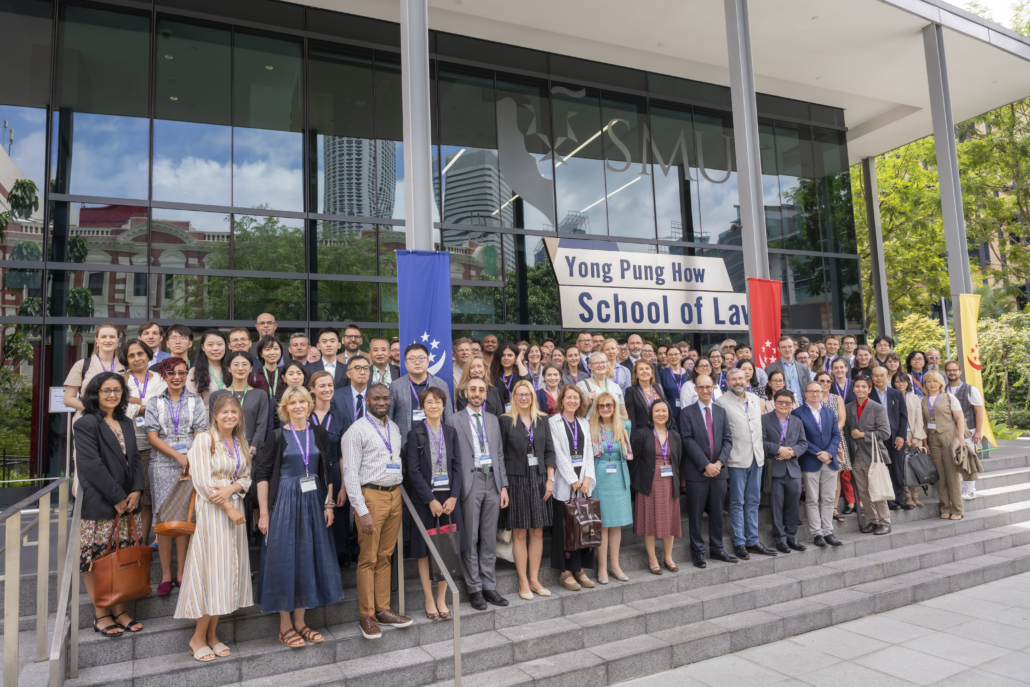Views
Review of: PP Penasthika, Unravelling Choice of Law in International Commercial Contracts: Indonesia as an Illustrative Case Study (The Hague: Eleven Publishers 2022)

Very recently, Indonesian private international law has attracted significant scholarship in the English language.[1] Dr Penasthika’s monograph (‘the monograph’)[2] is one such work that deserves attention for its compelling and comprehensive account of choice of law in international commercial contracts in Indonesia. My review attempts to capture the methodology, summarise the contents, and give a verdict on the quality of this monograph.
Mbatha v. Cutting: Implications for Litigants of Indian Origin
Guest Post by Chytanya S. Agarwal*
I. Introduction
Rising cross-border migration of people and concomitant increase in lawsuits relating to matrimonial disputes between couples brings to the forefront the issue of conflict of jurisdictional laws (219th Law Commission Report, ¶1.1-¶1.2). Mbatha v. Cutting is one such recent case that grapples with conflict of laws pertaining to divorce and division of matrimonial property when the spouses are domiciled in separate jurisdictions. In this case, the Georgian Court of Appeal dealt with competing claims from a couple who married in New York and had their matrimonial domicile in South Africa. The wife, domiciled in Georgia, USA, argued for the application of the matrimonial property regime of South Africa – their only (though temporary) common matrimonial domicile. In determining the applicable law, the Court upheld the traditional approach, which favours lex situs for real property and lex domicilii for personal property.
Views and News from the 9th Journal of Private International Law Conference 2023 in Singapore
Four years after the 8th JPIL conference in Munich, the global community of PIL scholars finally got another opportunity to exchange thoughts and ideas, this time at Singapore Management University on the kind invitation of our co-editor Adeline Chong.

The conference was kicked off by a keynote speech by Justice Philip Jeyaretnam (Singapore International Commercial Court), providing an in-depth analysis of the Court of Appeal’s decision in Anupam Mittal v Westbridge Ventures II [2023] SGCA 1 (discussed in more detail here).
The keynote was followed by a total of 23 panels and four plenary sessions, a selection of which is summarised below by our editors.
News
“The Law(s) of the Arbitration Agreement” by Professor Ron Brand
A recent study by the Law Commission of England and Wales has resulted in proposed amendments to the Arbitration Act 1996 that include a default rule that an arbitration agreement will be governed by the law of England and Wales if the arbitration is seated in that territory. Given the importance of London as an arbitration center, this has implications for many international commercial contracts.
In his new article, Professor Ron Brand from the University of Pittsburgh School of Law challenges the premise behind the proposed amendment that there is a single “law of the arbitration agreement.” Instead, he demonstrates that there are multiple laws applicable to an arbitration agreement. He explains this multiplicity of applicable laws by considering the possible grounds for challenge of jurisdiction of an arbitral tribunal based on the arbitration agreement. Such an analysis demonstrates that very different laws may apply to questions of the existence, formal validity, substantive validity, scope, and exclusivity of an arbitration agreement. He reviews these issues in the broader context of choice of forum clauses generally, including both arbitration and choice of court agreements, and then considers a hypothetical international commercial transaction in which questions might arise about the first four of these five jurisdictional questions – demonstrating both the problems with the idea of a single “law of the arbitration agreement,” as well as the practical impact and importance of well-drafted choice of forum agreements, including provisions on choice of law. Although prompted by the proposed change in English law, this discussion has implications for the law in every jurisdiction regarding agreements to arbitrate, indicating that both transaction planners and dispute resolution lawyers need to be cognizant of the laws applicable to arbitration and choice of court agreements.
The article is available here.
Choice of Law in the American Courts in 2024
The thirty-eighth annual survey on choice of law in the American courts is now available on SSRN. The survey covers significant cases decided in 2024 on choice of law, party autonomy, extraterritoriality, international human rights, foreign sovereign immunity, adjudicative jurisdiction, and the recognition and enforcement of foreign judgments.
This annual survey was admirably maintained by Symeon Symeonides for three decades. The present authors are pleased to have extended this tradition.
HCCH Monthly Update: January 2025
Conventions & Instruments
On 1 January 2025, the 2005 Choice of Court Convention entered into force for Switzerland. At present, 36 States and the European Union are bound by the 2005 Choice of Court Convention. More information is available here.
On 12 January 2025, the 2007 Child Support Convention entered into force for Cabo Verde. At present, 52 States and the European Union are bound by the 2007 Child Support Convention. More information is available here.


